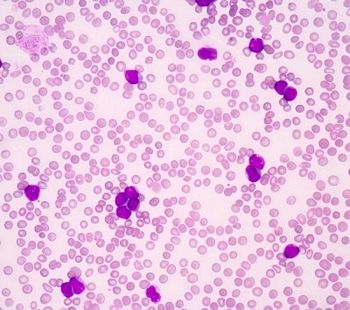
Findings from a study indicate that measurable residual disease clearance is associated with favorable outcomes in acute myeloid leukemia following subsequent therapy before allogenic stem cell transplant.

Your AI-Trained Oncology Knowledge Connection!


Findings from a study indicate that measurable residual disease clearance is associated with favorable outcomes in acute myeloid leukemia following subsequent therapy before allogenic stem cell transplant.

The FDA gives orphan drug designation to BEA-17, an investigational small molecule degrader that may benefit those with a common and aggressive brain tumor.

A biologic license application that has been resubmitted to the FDA for remestemcel-L in pediatric graft-versus-host disease includes new long-term survival data from a phase 3 clinical trial.
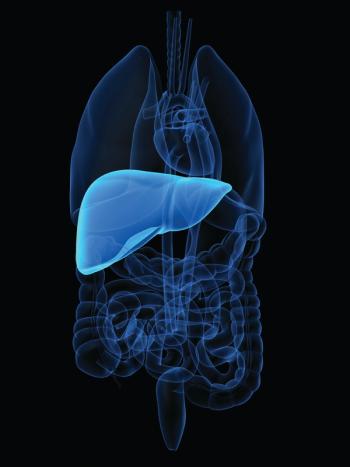
According to findings from a phase 2 clinical study, futibatinib may achieve benefit in patients with intrahepatic cholangiocarcinoma harboring FGFR2 rearrangements.

Pembrolizumab plus chemotherapy appears to produce a significant improvement in progression-free survival among patients with advanced or recurrent endometrial cancer.

During a live Tweet Chat, Hope S. Rugo, MD, and Paolo Tarantino, MD, reviewed a patient case and discussed current standard of care for those with metastatic triple-negative breast cancer.

Expert oncologists review key updates regarding metastatic colorectal cancer from recent meetings and discuss their implications on real-world clinical practice.
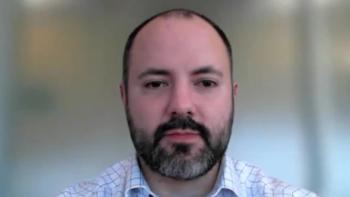
An expert from Ochsner Health discusses the essential role positive lifestyle habits and regular screenings play in preventing cancer diagnoses.

Lack of access to adequate mental health care affects both patients and survivors of cancer who experience significant burdens, highlighting a need for normalization, according to a licensed clinical social worker.

“Being a patient advocate means not so much putting ourselves in the patient's shoes but asking the right questions to find out what those barriers to care are,” says an oncology survivorship navigator from Sibley Memorial Hospital, Johns Hopkins Medicine.

An expert from Dana-Farber Cancer Institute discusses what the approval of sacituzumab govitecan means for patients with advanced hormone receptor–positive, HER2-negative breast cancer.

Patients with pre-treated, unresectable locally advanced or metastatic hormone receptor-positive, HER2-negative breast cancer can now receive treatment with sacituzumab govitecan following approval from the FDA.

An expert from Yale School of Medicine discusses how the approval of adjuvant pembrolizumab expands treatment to include patients with IB, II, III, and IIIA resected, early-stage, non–small cell lung cancer regardless of PD-L1 expression.

Data from the final analysis of the phase 3 KEYNOTE-966 trial indicate that pembrolizumab plus chemotherapy yields improvements in overall survival compared with chemotherapy alone in patients with advanced biliary tract cancer.

Experts discuss the genetics of multiple myeloma, the prevalent testing paradigms in this space, and possibilities for the future.
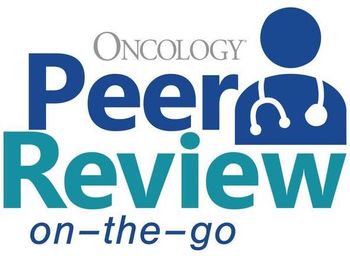
Julianne Cooley, MS, spoke with CancerNetwork® about older patients with later stage cervical cancer who have lower survival rates compared with their younger counterparts.

Adjuvant osimertinib continues to prolong survival and improve outcomes among patients with resected, EGFR-mutant non–small cell lung cancer.

The FDA gives orphan drug exclusivity to sodium phosphate injection for the prevention of cisplatin-related hearing loss in pediatric patients 1 month and older with localized, non-metastatic solid tumors.

Findings from a randomized clinical trial suggest that tele-cognitive behavioral therapy may help reduce body image distress among survivors of head and neck cancer.

Expert oncologists review the clinical data supporting the use of sacituzumab govitecan in metastatic triple-negative breast cancer.

Patients with tenosynovial giant cell tumors, a rare locally aggressive neoplasm, who are unable to undergo surgery may benefit from treatment with pimicotinib.

Investigators will evaluate DK210 in a first-in-human phase 1 clinical trial following the FDA’s review of an investigational new drug application for the compound for locally advanced or metastatic EGFR-positive solid tumors.

The FDA has approved Guardant 360 CDx as a companion diagnostic for elacestrant in patients with ESR1-mutant, estrogen receptor–positive, HER2-negative advanced or metastatic breast cancer.
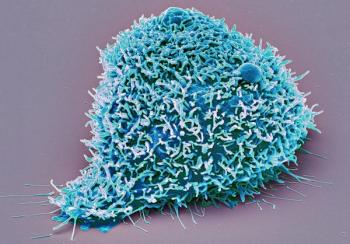
Experts review key clinical data and current treatment strategies for renal cell carcinoma following updates from the 2022 IKCS meeting.

Maintenance olaparib plus bevacizumab may improve survival in patients with high-grade ovarian cancer regardless of BRCA mutation location, according to a subgroup analysis of the PAOLA-1/ENGOT-ov25 trial.

The emergence of using hypofractionated radiation treatments—fewer radiation treatments at larger doses—across cancer types may place financial strain on radiation oncologists, but one expert notes there’s still continued success.

Results from the phase 1/2 CodeBreaK 100 trial indicate that sotorasib yields positive anticancer activity and safety in patients with pancreatic cancer harboring KRAS p.G12C mutations.
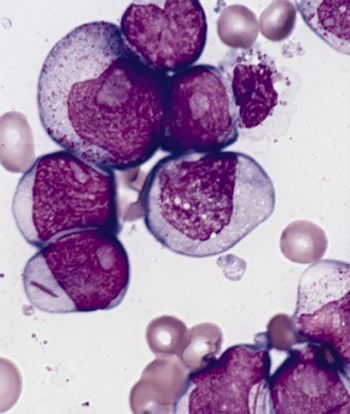
Investigators say that a phase 1/2 trial evaluating MGTA-117 in 2 hematologic malignancies has been paused following a serious adverse effect that may be related to the agent.

“Nonetheless, we saw tremendous benefits for these patients, patients who didn’t benefit from other treatments, and it was exciting to be involved with this early research.”

Combining bispecific antibodies with other agents such as R-CHOP and R-CHP for various subtypes of lymphoma has the potential to produce exciting results, according to an expert from Dana-Farber Cancer Institute.